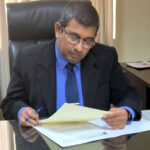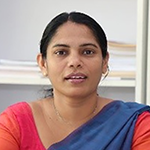The governing structure of the National Institute of Social Development (NISD) is entrusted to the Council, as outlined in the National Institute of Social Development Act No. 41 of 1992. This esteemed body, referred to as the “Council,” is responsible for the administration, management, and control of the Institute’s affairs. The Council exercises powers, functions, and duties conferred upon the Institute by the Act, ensuring effective governance and strategic oversight.
Powers and Responsibilities: The Council, comprised of ex-officio and appointed members, plays a pivotal role in steering the Institute’s direction. It is mandated to prepare comprehensive plans, including a five-year plan of work, an annual plan and program, and an annual budget.
Composition of the Council: The Council is composed of ex-officio members, including the Chairman – the Secretary to the Ministry of the Minister in charge of the Subject, and the Director-General of the Institute. Additionally, appointed members, representing various sectors, contribute to the Council’s diverse expertise. These appointments include representatives from the Ministry of Higher Education, the University Grants Commission, the Ministry of Finance, and individuals with professional qualifications and experience in social work and social development.
Appointment and Tenure: Members appointed to the Council, excluding ex-officio members, are appointed by the Minister. The Council includes individuals with professional qualifications and experience in the fields of social work and social development. Members hold office for a period of four years, and one-half of the appointed members retire every second year, ensuring a continuous infusion of fresh perspectives.
Chairmanship and Meetings: The Chairman, who is the Secretary to the Ministry of the Minister in charge of the subject of Social Welfare, presides over Council meetings. In the Chairman’s absence, the Director-General assumes this role, and in the absence of both, a member elected by present members takes the chair. Meetings require a quorum of at least four members, and decisions are made by a majority vote. In the event of a tie, the presiding member has a casting vote.
Validity and Regulation: The Council, guided by its mandate, may regulate its procedures and transactions, ensuring efficient decision-making. The Act explicitly states that no act, decision, or proceeding of the Council is invalid due to the existence of vacancies or defects in the appointment of its members.
Chairperson of the Governing Council

Mr. Sampath Manthrinayake
Secretary
The Secretary,
Ministry of Rural Development, Social Security and Community Empowerment
Members of the Governing Council

Senior Professor
Premakumara de Silva
Director General (Act.)
National Institute of Social Development

Senior Professor
Wasantha Subhasinghe
Vice Chancellor (Act.)
Wickramarachchi University of Indigenous Medicine

Prof. Hemantha Kumara, N.V.G.A.
Department of Sociology
Faculty of Humanities and Social Sciences
University of Ruhuna

Prof. R.M.D.B. Herath.
Professor in Sociology,
at the Department of Sociology,
University of Peradeniya

Dr. S.A.D. Samaraweera
Faculty of Languages Humanities and Social Sciences
National Institute of Education,
High Level Rd., Maharagama

Dr. Vijitha Nanayakkara
Senior Lecturer,
Department of Sociology,
University of Peradeniya

Mr. H.L. Tissera
SLAS (special Grade-Retired)/
Registered Disciplinary Inquiry Officer

Mrs. M.T.R. Shamini Attanayaka
President SLAPSW,
Former Additional Director General-Academic, NISD

Mr. P. Nandana Kumara
Senior Deputy Commissioner
Revenue Monitoring
Department of Inland Revenue,
Sri Lanka

Mr. P.A. Thilakarathna
Additional Director General,
Department of State Accounts,
Ministry of Finance

Ms. W.R.U. Nuwanthi
Assistant Director (Development),
Higher Education Division, Ministry of Education
